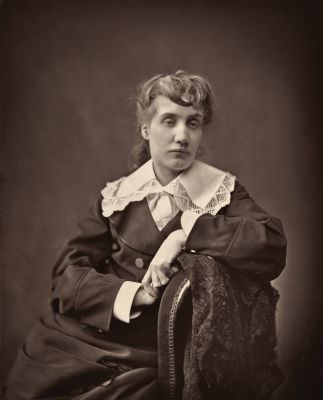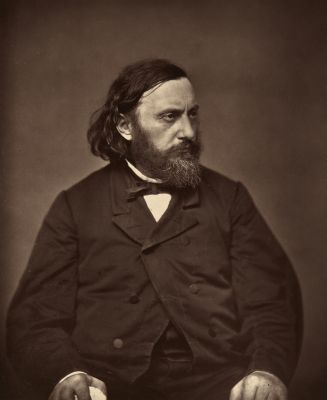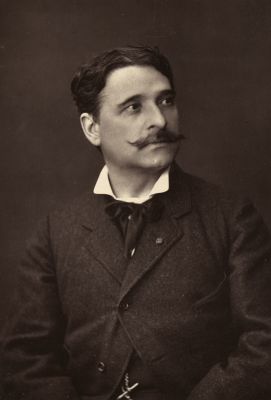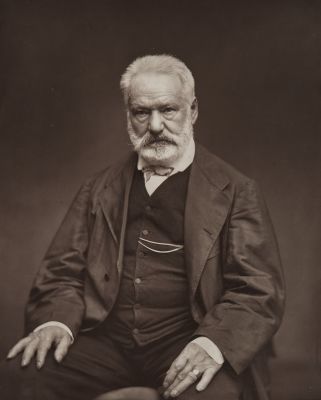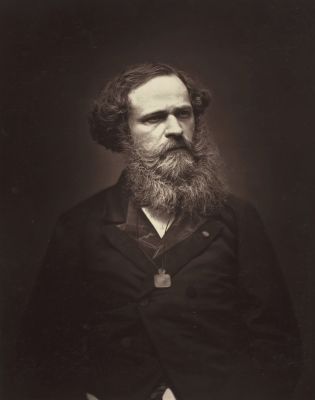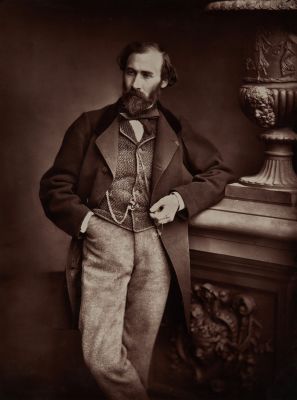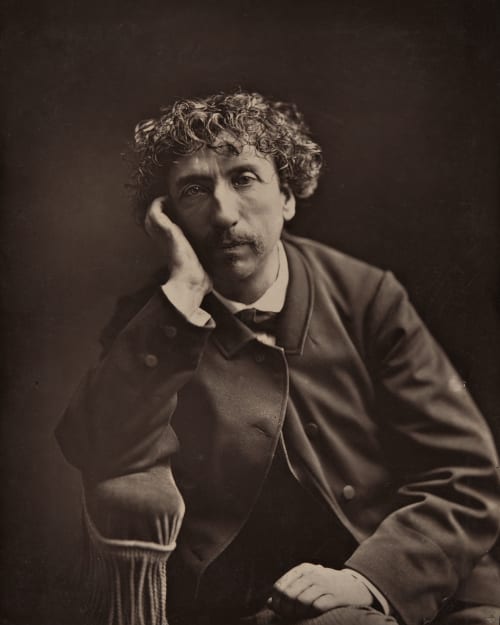
Title
Garnier (de l’opéra)Artist
Adam-Salomon, Antoine Samuel (French, 1811-1881)Publication
Galerie ContemporaineDate
1877 plate (1865 negative)Process
WoodburytypeImage Size
23.9 × 19.3 cmSheet Size
35 × 26 cm
Galerie Contemporaine, stands out due to its ambitious scope, as well as for the quality of the photographic imagery it contained. Underpinned by a certain patriotic sentiment and a more sophisticated approach to celebrity, the subtitle Litteraire Artistique declares the work’s focus of interest to be high art. In fact Galerie Contemporaine evolved into the most impressive set of celebrity portraits published in nineteenth-century France, forming a vital visual record of the leading figures who shaped public life, in science and politics as well as the arts, during the Second Empire and the emergent Third Republic. [1]
Issued in parts from 1876 to 1884 by the firm of Goupil, the series contained 241 portraits of leading figures from the worlds of art, literature, music, science, and politics by a host of Parisian photographers. A landmark in early photomechanical publications, Galerie Contemporaine’s illustrations were printed as large woodburytypes–a photomechanical process that reproduced the continuous tones of photography but did so with permanent molded gelatin. The improved speed and economy with which woodburytypes could be printed, as well as their permanence and beauty, made them a practical option for photomechanical book illustration in the 1870s, ultimately however they were eclipsed by more cost effective options however less beautiful.
Antoine-Samuel Adam-Salomon was a sculptor in his early career. He exhibited in the Paris Salon, first under his own name and then under the name Adama. Adam-Salomon learned photography in 1858 in Munich; in the following year, he opened his own portrait photography studio in Paris while continuing to sculpt.
A contemporary journal noted: "Among the French photographic portraitists Mr. Solomon [sic]…enjoys a greater reputation than any other photographer…His price for a sitting is 200 francs; and [his] rooms are always full…" Although his prices were somewhat high, Adam-Salomon’s peers found his work to be highly artistic. He joined the Société Française de Photographie and exhibited regularly in the salons there. Adam-Salomon gave up photography in 1873 because of illness. (Getty)
References
[1] Hannavy, John, editor. Encyclopedia of Nineteenth-century Photography, p. 971 and 567.


